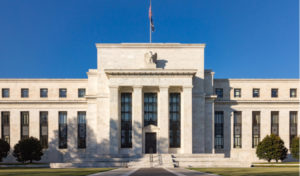John Cochrane, a Senior Fellow at the Hoover Institute and an adjunct scholar at the Cato Institute writes of the terms of the bailout, “where is the outrage?” We would concur. Bailing out leveraged speculators and publicly traded firms that took on too much debt to juice personal and/or shareholder returns is a huge mistake.
The prudent investors who stabilize the system in times of crisis and the private equity firms with as much as $2 trillion in dry powder have been told to sit down. The Fed is on the job. Hooray, the government is here to fix the price of capital. Apparently, it was broken.
What’s the message the bailout sends? Lever up and lobby. There is no reward for prudently managing risk. In fact, as Mr. Cochrane points out, you are made to look like a chump.
Will the financial system be more or less stable because of the Fed’s actions? And, will the next crisis be larger or smaller than the current crisis? The answers should be obvious.
Cochrane writes (emphasis is ours):
The greatest financial bailout of all time is underway. It’s 2008 on steroids. Yet where is the outrage? The silence is deafening. Remember the Tea Party [Ed. note: famously championed by Ron Paul, author of End the Fed] and occupy Wall Street? “Never again” they said in 2008. Now everyone just wants the Fed to print more money, faster. (Well, there are some free market economists left. But we’re a small voice!)
Maybe the Fed is right that if any bondholder loses money, if bond prices fall, if companies reorganize in bankruptcy, the financial system and the economy will implode. I am not here today to criticize that judgement. But if so, we must ask ourselves how we got to this situation, again, so soon. Once is an expedient. Twice is a habit. It is clear that going forward any serious shock will be met by bailouts, and the Fed printing reserves to buy vast quantities of any fixed-income asset whose price starts to fall.
Why does the Fed feel the need to jump in? Because once again America is loaded up with debt, because bankruptcy is messy, and because the Fed fears that debt holders losing money will stop the financial system from providing, well, more debt.
This crisis is a huge wealth shock. The income lost during shutdown is simply gone. The question is, who is going to take that loss? Borrowing to keep paying bills, the current solution, posits that future profits will soak up today’s losses. We’ll see about that. The CARES act puts future taxpayers squarely on the hook to pay today’s bills. But where do those bills go? To creditors — property owners, bond holders, and so forth. If we’re looking around for pots of wealth to absorb today’s losses, why are bondholders not chipping in? The biggest wealth transfer in history is underway, from tomorrow’s taxpayers to today’s bondholders, on the theory that if they lose money the economy falls apart?
OK, but why did America load up with debt again, apparently all “systemically important?” Could the expectation of a bailout any time there is an economy wide shock happens have had something to do with it? Will we do anything when this is over to stop companies from once again loading up with debt — especially short term debt — and forcing the Fed’s hand again?
Meantime, anyone who hoarded some savings in the hope of profiting from fire sales, in the hope of providing liquidity to “distressed markets” has once again been revealed as a chump. Will we do anything to encourage them? Will lots of debt, private gain, taxpayers take the losses, be the perpetual character of our financial system.
“You can’t worry about moral hazard in a crisis,” they said, and they didn’t. At least last time there was some recognition of moral hazard, and a promise to clean up the moral hazard with reform. Will there be any such effort this time? Is anyone even thinking about the enormous moral hazard we are creating with these precedents? Will the financial system perpetually a four-year-old on a bicycle, a parent running closely behind with one hand on the seat? Will the “Powell put” on fixed income grow ever larger? Or will we, this time, finally cure the financial system so it can survive the next shock?
You can read his entire post here.

